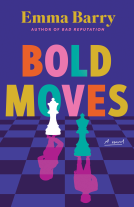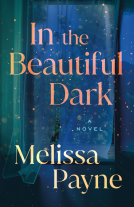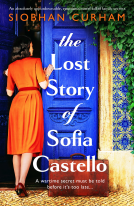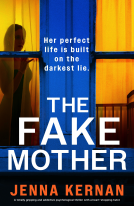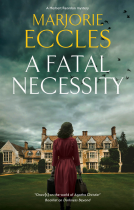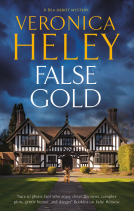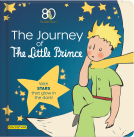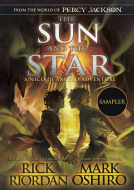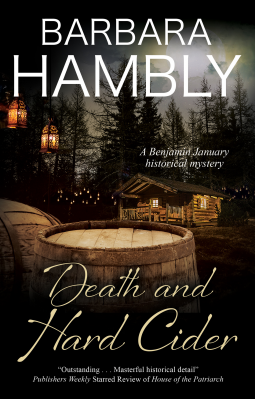
Death and Hard Cider
by Barbara Hambly
This title was previously available on NetGalley and is now archived.
Send NetGalley books directly to your Kindle or Kindle app
1
To read on a Kindle or Kindle app, please add kindle@netgalley.com as an approved email address to receive files in your Amazon account. Click here for step-by-step instructions.
2
Also find your Kindle email address within your Amazon account, and enter it here.
Pub Date 7 Jun 2022 | Archive Date 31 May 2022
Talking about this book? Use #DeathandHardCider #NetGalley. More hashtag tips!
Description
Musician, sleuth and free man of color Benjamin January gets mixed in politics, with murderous results.
September, 1840. A giant rally is being planned in New Orleans to stir up support for presidential candidate William Henry Harrison: the Indian-killing, hard-cider-drinking, wannabe "people's president". Trained surgeon turned piano-player Benjamin January has little use for politicians. But the run-up to the rally is packed with balls and dinner parties, and the meagre pay is sorely needed.
Soon, however, January has more to worry about than keeping his beloved family fed and safe. During an elegant reception thrown by New Orleans' local Whig notables, the son of a prominent politician gets into a fist-fight with a rival over beautiful young flirt Marie-Joyeuse Maginot – and, the day after the rally is over, Marie-Joyeuse turns up dead. The only black person amongst the initial suspects is arrested immediately: January's dear friend, Catherine Clisson.
With Catherine's life on the line, January is determined to uncover the truth and prove her innocence. But his adversaries are powerful politicians, and the clock is ticking . . .
A Note From the Publisher
Available Editions
| EDITION | Other Format |
| ISBN | 9780727850744 |
| PRICE | US$28.99 (USD) |
| PAGES | 256 |
Featured Reviews
 Kristie D, Reviewer
Kristie D, Reviewer
I enjoyed this historical mystery. It’s extremely well written and kept my interest. Rich in historic detail and well developed characters made it a very interesting and enticing read for me. The mystery itself had lots of twists and turns that kept me guessing until the very end. I highly recommend this novel to anyone who likes a good and solid historical mystery with some depth!!!
 Fiona A, Reviewer
Fiona A, Reviewer
Benjamin January, musician, surgeon, and free man of colour, lives in New Orleans in 1840. Political tensions run high when Henry Clay of the American Colonization Society (or the “Send ’Em Back to Africa” club), arrives in town canvassing for ‘Tippecanoe’ Harrison. Benjamin’s little orchestra is called upon to provide musical background at political events, rallies and receptions, both Democrat and Whig. Along with the music, they contribute a running commentary on who will call out whom before the end of the evening. Shortly after one such duel, the beautiful daughter of a semi-impoverished plantation owner is found dead. She was well-known as a shameless flirt; endless suitors, both married and single, have been dangled and played with. Perhaps one of them had reason enough to kill her. When a long-time friend is arrested for the murder, January joins the hunt for the truth, going places and asking questions others can’t. Finding himself in danger, he realises there’s a second, more politically motivated murder in the offing. Layered with undercurrents about the horrors and ambiguity of slavery, Hambly’s secondary storyline of a fugitive slave reminds us of January’s deeply felt personal beliefs and the risks he runs every day.
Such a long-running series (this is book 19) inevitably has complex backstory and character interaction, only a small portion of which can be included here. Hambly’s passionately descriptive narrative style makes for a paced read, a novel to be savoured, not rushed. Steeped in Southern atmosphere—the oppressive bayou heat, the buzzing vibration of mosquitoes, smouldering cressets, rustling sugar cane—January negotiates a tightrope of politics, friendship and family loyalty. Readers unfamiliar with the series might want to begin with an earlier book, to set the stage, but there’s no doubt this is an engrossing series.
 Reviewer 949832
Reviewer 949832
This is the 19th entry in this series, but can be read as a stand-alone. Benjamin January is a physician, musician and free man of color. The novel is set in New Orleans in 1840 during the run up to a presidential election. Henry Clay is in town to support the candidate and his son James is one of many suitors for a young, beautiful flirty plantation owner's daughter. She ends up murdered and Benjamin January's friend is accused of the murder and he investigates to clear her name. The mystery is interesting and the story is very well-written, steeped in details of the historical time and the descriptions of New Orleans.
 kATHLEEN G, Reviewer
kATHLEEN G, Reviewer
A terrific addition to a thoughtful series which is perfectly enjoyable as a standalone. Benjamin January, a free man of color who is both a physician and a musician finds himself in the middle of a political mess in 1840 New Orleans - and then there's a murder. Henry Clay's son James is entranced by Marie Joyeuse, which is slightly scandalous but then she's murdered. Catherine, who January loved as young man, is accused of the crime but he's certain she didn't do it and, luckily neither does Sheriff Abigshag Shaw. This is complex (Hambly packs a lot into a slim volume) with lots of real people in the cast (I spent some time following up). It's twisty enough but it also doesn't lose the humanity. Fans should know that January's family doesn't figure as much in this as in some (although Rose is always there). Thanks to Netgalley for the ARC. For fans of historical fiction.
 Librarian 431790
Librarian 431790
Barbara Hambly added another compelling and entertaining story to Benjamin January series.
It's a gripping mystery, full of twists, that kept me guessing. Great characters, plotting, and vivid historical background.
Highly recommended.
Many thanks to the publisher and Netgalley for this ARC, all opinions are mine
 Sarah-Hope P, Educator
Sarah-Hope P, Educator
When a mystery series is up to its nineteenth volume, you know it has something special going for it. In the case of Barbara Hambly's Benjamin January series, that something is a historically informed exploration of life in the U.S. shortly before the Civil War as lived by "colored" characters and set in New Orleans. I use the term colored here, rather than Black, because of the significant role color played at that time and in these books. If one had a single grandparent or great-grandparent of color one was colored, but the number of such grandparents (with fewer being seen as better) could play a significant role in social status—think of terms like quadroon and octaroon.
Benjamin January is a free man of color, son of a placée: a free colored woman who had established a contractual relationship with a white man to serve as his mistress in exchange for significant financial support (see https://en.wikipedia.org/wiki/Pla%C3%...). He trained as a surgeon in France, but his opportunities to use his skills are limited in pre-Civil War New Orleans, so he makes his living primarily as a musician playing at events held by wealthy whites and by offering piano lessons. He has two sisters: one also a placée, the other a respected voodoo practitioner and healer. His wife, who is highly educated, runs a boarding school for colored girls who wish to receive the kind of demanding education generally reserved for boys at that time.
January's free status makes him markedly privileged in a society so dependent on slavery, but that privilege is vulnerable: at any time he could be kidnapped and "sold down the river" as a slave. He spends significant amounts of time both in the company of slaves and in the company of white men. In the latter case, he has to carefully monitor his every word and gesture because perceived "uppityness" on his part could quickly lead to violence or death. There are two white men with whom he has more equitable relationships—one a sheriff's deputy, the other a fiddle player—but even with them, in order to remain safe January's public behavior has to appear servile.
That's all contextual information. This particular volume of the series takes place during the Presidential contest between Martin Van Buren and William H. Harrison (Old Tippecanoe). Henry Clay, considered a reformer in his time because he supported an early version of the "back to Africa" movement and who is credited with delaying the start of the Civil War several times, is campaigning for Harrison. The Harrison campaign was notable for its use of new campaign tactics: theme songs, give aways (hard cider, for example), over-large symbolic constructions (a giant rawhide ball carrying the signatures of 20,000+ supporters) exhibited along the campaign trail, and dirty tricks.
After one of these campaign events, a young white woman is found murdered. The suspects include several men who have been enamored of her, including Henry Clay's son James—or their older male relatives who have more economically beneficial marriage arrangements planned for these young men. As a result, the person actually arrested for the crime is a former placée, mother of a current placée contracted to one of the victim's suitors and recently abandoned by him.
The mystery around the woman's killing is well constructed with enough disparate threads to keep readers guessing. But every bit as engaging as that mystery is Hambly's depiction of politics and race relations at the time, particularly her portrayal of Henry Clay. Clay is generally seen as a principled man with progressive racial views for his time. The historical reality is much more complex. As the mystery is unravelled, so is the character of Clay, showing the ways in which he was every bit a (white) man of his time.
This is an historical mystery that provides a satisfying read by virtue of its mystery, but its exploration of politics and race in U.S. history makes much more than that, inviting readers to see events from a perspective that isn't part of the mainstream narrative. Hambly has been doing that throughout this series, but Death and Hard Cider is her most effective volume yet in terms of its hard-eyed view of the times in which the novel occurs.
I received a free electronic review copy of this volume from Severn House via NetGalley; the opinions are my own.
Despite this being the nineteenth book in the series, it’s the first time I’ve had the pleasure of reading about Ben’s adventures. And what a ride it was… Hambly’s prose is richly descriptive of the lush, often hedonistic setting that starkly rubs shoulders with utter poverty and deprivation. We see all this through Ben January’s eyes, who was brought up in New Orleans – but then spent time in France, where he trained as a surgeon. So while he is very familiar with the neighbourhood, he isn’t as necessarily as accepting of the ingrained and cultural prejudice as many of his peers. It’s a tricky balance to achieve, but Hambly negotiates it well.
In New Orleans, Ben obviously isn’t able to earn a decent living as a skilled medical man – none of the well-heeled white folks would entertain the notion of being treated by black man. However, he is also a skilled musician and with a series of grand election rallies coming up, he is employed to play at all these events – both the Democrat and Whig functions. Hambly gives us a ringside seat as inflammatory speeches are made, food and drink is handed out to the crowd and rousing songs slurring the reputations of political opponents are sung.
And throughout all the hectic activity, the dark thread of institutional prejudice, exclusion, double-standards and hypocrisy winds across the society. It’s masterfully done – and brought home to me just how much damage slavery wrought. Not only upon those whose lives were shackled to unceasing hard labour with no prospect of anything better – but also to those responsible for it. The story is all the more effective for Ben’s bitter acceptance of such a miserable state of affairs, as Hambly is brilliant at showing, not telling. And since I finished this one, I’ve been thinking a great deal about the situation – particularly as slavery is still going on.
There is also a murder mystery to be solved. Initially, I thought the pacing was a tad slow – but I think that’s because of the rather chatty blurb. If I hadn’t been waiting for a certain key event, I don’t think it would have been an issue. After the murder, consequences roll forward and Ben has to get involved to save the life of someone very dear to him. To be honest, I would have been happy with this book if the whodunit aspect had been averagely good, given the quality of the backdrop and its vivid depiction. But the icing on the cake is that the murder mystery is very well executed, with a brilliant denouement. This might have been the first Ben January mystery I’ve read, but it certainly won’t be the last.
Very highly recommended for fans of historical murder mysteries. While I obtained an arc of Death and Hard Cider from the publishers via Netgalley, the opinions I have expressed are unbiased and my own.
10/10
 Deborah W, Reviewer
Deborah W, Reviewer
"Death and Hard Cider" is a mystery set in 1840 in New Orleans. This is the 19th book in a series, but it can be understood without reading the previous novels and didn't spoil the previous mysteries. The setting and historical details were woven into the story, creating a distinct sense of that specific time and place and bringing the story alive in my imagination.
Since the lead character is a free, well-educated black man, he was able to interreact with white men in a respectful manner. He was also able to get clues from the slaves and others who wouldn't trust the white law officer who worked with him to find out who killed the teenaged white girl. They asked questions, followed up on clues, and January's medical skill came in handy. Whodunit's trying to kill those investigating, so there's danger along the way. There were clues and whodunit can be guessed, especially right around the same time as the main characters do. And then they have to definitively prove it. The characters were interesting, complex, and acted in realistic ways.
There was no sex. There was a fair amount of bad language. Overall, I'd recommend this historical mystery.
 Erik M, Reviewer
Erik M, Reviewer
Book 19 in the series and still going strong with new ideas and excitement. This book is full of scandal and mystery with a closely contended political race that heats up with every page. As a first-time read, I highly recommended the story, and you don't really need to read the previous books to understand the overall story.
Thank you to the publisher and Netgalley for this ARC.
Death and Hard Cider is the 19th Benjamin January novel by Barbara Hambly. Released 7th June 2022 by Severn House, it's 256 pages and is available in hardcover and ebook formats. Paperback due out 1st quarter 2023. It's worth noting that the ebook format has a handy interactive table of contents as well as interactive links. I've really become enamored of ebooks with interactive formats.
These books are superbly well written. The author manages to convey the very real peril of living as a person of color in the southern USA in the 1840s. Despite being a European trained physician and gifted musician, Dr. January is continually at risk of being kidnapped and forced into slavery.
It works well as a standalone, the mystery (less of a murder mystery and more of a 'how will they get out of this alive') and parallel plots work very well without previous familiarity with the series. I do recommend reading the series, however, for the consistently high quality of the plotting, the depth and realism of the scenery and characterizations as well as the meticulous historical research. The books are full of the casual racist violence which was endemic to that part of the world, and they could have been relentlessly depressing. The author manages to imbue the characters with nobility, grit, purpose, honesty, and even a touch of humor and whimsy (especially the relationship between Hannibal and Rose, which is wonderful).
Four and a half stars for this book, and five stars for the series. Highly recommended for fans of historical mystery. I love these books and truly look forward to every installment with anticipation.
Disclosure: I received an ARC at no cost from the author/publisher for review purposes.
 EMILY L, Reviewer
EMILY L, Reviewer
I am a long time fan of the Benjamin January series and all of the continuing characters --who are present and very satisfying in this installment. There are a couple of well-plotted mysteries and plenty of intrigue. The setting remains set in New Orleans and surrounds, this time, with no one traveling. Henry Clay comes to town to campaign for William Henry Harrison (Tippiecanoe and Tyler too). It's 1840 and the Whigs are pulling out all kinds of campaign strategies with this slogan and songs, parades and rallies where music and hard cider add to the general uproar about the campaign.. Ben views slave holder Clay positively, because he thinks about slavery as a problem requiring attention. Clay was a founder of the American Colonization Society that resettled free people of color to Africa. Some who are opposed to slavery and enslaved people in the area might not view him so charitably as he finds ways in Congress to appease the south to avoid secession.
We find Ben happy for the fact that he has some summer music jobs thanks to the campaign, but somewhat hard pressed to pull together enough musicians for some of the organizer's requests. And at each gathering is Marie-Joyeuse, the stunningly beautiful sixteen year old vamp, daughter of a failing plantation owner. She is cousin to * Damien Aubin, recently married to a "mad" woman and unfailingly in love with this beautiful girl-woman. Marie-Joyeuse loves to have men fight and even duel over her. I would say that this is a novel where it would have been helpful to have a list in the front of all the new characters and their connections to one another including Marie-Joyeuse's would be suitors, their family members, their placees, if relevant and their financial status. The sheer number of characters were necessary to the storylines but totally confusing to a person who reads too quickly. (Guilty!)
I will always and forever follow this series, learning about the complex society of white and black New Orleans, the variations of experiences among the enslaved and free people, the in between rental slaves, the special status of placees and so forth. Each book teaches me about cultural and political aspects of this period. Just a completely fabulous experience from each entry and one of the few sets of books I kept when I down sized my collection. Recommend!
When I open a Barbara Hambly novel, whether a 1920s Hollywood mystery, a fantasy-with-dragons, or a disturbingly dark vampire tale, I’m in for a treat. Hambly’s touch is deft, never overwrought, her knowledge of history and human nature unerring, and her characters, memorable. One of my favorites is Benjamin January, born a slave in early 19th Century Louisiana, freed and then educated as a surgeon (and musician) in Paris, now back in New Orleans. Over the course of the preceding volumes, he’s cobbled together a living as a musician playing at parties and other events by the rich whites of the city, while solving more mysteries than a raft of Sherlock Holmses, despite the intricate mores of the old French culture and the encroaching danger of the American way of slavery. He’s in constant danger of being kidnapped, his freedom papers destroyed, and being sold to a plantation and a short, brutal life in the sugar cane fields. Despite all this, he has married an extraordinary Black woman and made more than a few friends, some of them white. The one thing he’s never wanted to get involved with is American politics.
But it’s 1840 and William Henry Harrison is running for president. The campaign involves a monumental rally with speeches, fireworks, balls, and dinner parties, and Ben badly needs the meager pay in an otherwise dead season. In the midst of the campaign, a privileged young white woman, a determined flirt notorious for setting her suitors against each other, is found murdered. Suspicion lands, quite illogically, on a Black woman, Catherine, Ben’s dear friend and first, unrequited love.
As with previous Ben January mysteries, the fascinating historical detail, plot twists, engaging characters, and deeply felt but restrained emotion kept me turning the pages. This book continues the earlier focus on the precarious condition of Black people in pre-Civil War New Orleans. It seemed to me, however, that the contradictions, turmoil, and simmering anger of Ben and his community came to the fore more powerfully. Perhaps that is due to the countdown to the Civil War or the grinding decades of oppression and fear, the perpetual risk of enslavement and necessity of humbling himself before men who cannot compare with his education, culture, and achievements, let alone his intelligence and innate decency. These feelings are among the things Ben dares not share with his few white friends (the unwashed but shrewd sheriff, the ex-addict Latin-quoting violinist), yet are instantly understood by the entire Black community.
Like all of Hambly’s work, highly recommended.
Readers who liked this book also liked:
Rick Riordan; Mark Oshiro
Children's Fiction, LGBTQIA, Teens & YA

